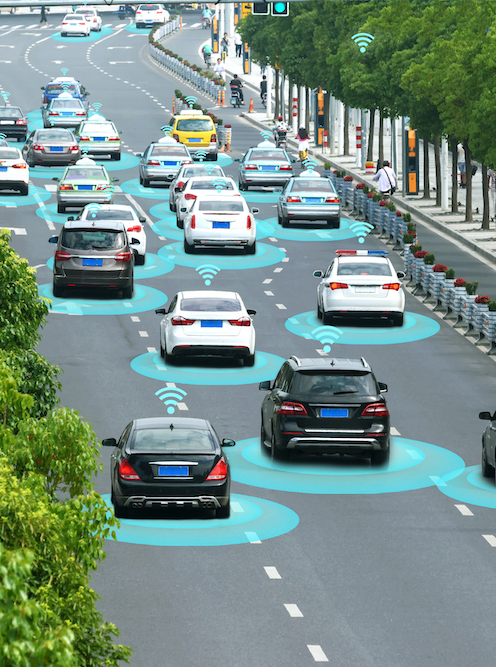
Three takeaways from Chicago's virtual visit with Fran Berman, a data scientist and professor at Rensselaer Polytechnic Institute.
- Career Readiness Program
As the world becomes increasingly driven by the Internet of Things (IoT), many researchers are concerned with ensuring that technological progress promotes the common good. This was the topic of discussion for a group of students who sat down (virtually) with special guest Francine Berman, a data scientist and professor of computer science at Rensselaer Polytechnic Institute. The event was hosted by UIC Engineering and Break Through Tech Chicago in celebration of International Women’s Day.
Here are three takeaways from the talk:
The ways in which we build and manage technology matter.
While acknowledging the many benefits of IoT (think robotic surgical instruments that can enable better precision or smart farms that can monitor the needs of a single plant), Berman also addressed potential risks and misbehaviors such as the privacy issues surrounding the use of facial recognition and cyber vulnerabilities in pacemakers, cars, and other things that could cause harm if exploited. According to Berman, the IoT ecosystem has implications that could shape our society into a utopia or a dystopia, and the future depends on us and how we develop and administer new technology.
New technologies produce a range of impacts.
Berman talked about the “impact universe,” referring to the social, environmental, and economic implications that new technologies bring to our society. She used the popular example of a self-driving car — a program that requires 100 million lines of code — to illustrate the many complex factors, tradeoffs, and competing strategies that need to be weighed to produce positive results in these areas. For example, making a car safer and making a car lighter are two competing goals that require balancing.
Everyone has a part to play in ensuring that technology promotes the common good.
Berman argued that promoting the common good is a holistic exercise not meant only for technologists. To balance tradeoffs and strategies, Berman pointed to the sectors of society that should play a role in establishing the most important common good in a given scenario. Government should take the lead in bringing oversight and fulfilling the role of protecting the public. Businesses can help with responsible design and practice as well as transparency about the risks and benefits of products. As citizens, we can help ourselves by making informed choices, protecting our data, and providing feedback through voting. Higher education can build public interest technology programs to increase technology literacy and societal strategies that promote the common good.
